Nutrition
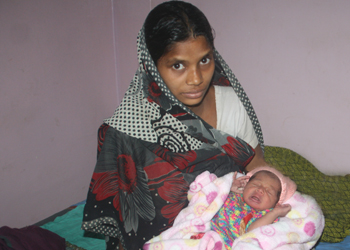
There is nothing quite like the deep hunger one experiences when pregnant. In the US, a woman might experience this sensation for an hour or two, but then her hunger is satiated by the meal of her choice. In India, one pregnant young woman went to bed hungry every night, and not because there wasn’t enough food in the house. You see, in India, when a young woman marries, she goes to live in her husband’s parents’ home. There is often a considerable amount of conflict in the mother-in-law and daughter-in-law relationship.
This particular young woman was the youngest daughter-in-law in the home, so it was her responsibility to do all of the cooking and cleaning. However, she was only allowed to eat the leftovers once everyone else in the home had eaten. When she arrived for a prenatal checkup with Dr. Sunitha Varghese at Broadwell Christian Hospital in Fatehpur, it was obvious she was not getting enough nutrition for her baby. When Dr. Varghese questioned her about her diet, the young woman was hesitant to speak in front of her mother-in-law, so the doctor asked for a moment alone with the patient. Once she understood the problem, Dr. Varghese thought quickly. She met with the mother-in-law and explained that her grandchild was not getting enough nutrition. This convinced the woman to feed her daughter-in-law better out of concern for her grandchild. The doctor knew that she could never convinced the woman to feed her daughter-in-law properly for her own sake, but only for the sake of the grandchild. EHA doctors know that every person is valued by God as His child. Working to improve the status of women is one of EHA’s areas of ministry in India.
Children’s Lunches See Improvement
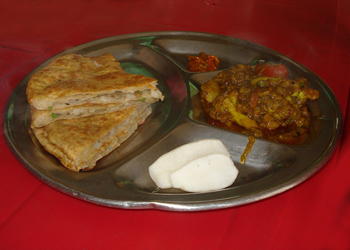
The 55 villages and urban slums reached by BCH’s Community Health and Development Projects receive help in many areas of life, from awareness of good health behavior to advocacy for accessing existing government programs. CHD staff encouraged one group of people to make a list of changes they would like to see, and then to pick one thing to work on. They chose to tackle the poor nutrition in their children’s lunches. This meal is provided by the government, so they visited the district headquarters and asked for better food. Soon they saw changes, and felt empowered realizing that they had helped to make the difference. Occurrences like this help the poor to understand how they can contribute to a good result versus continue in a dependent mode with local authorities.
Nutrition Education Brings the Gift of Life
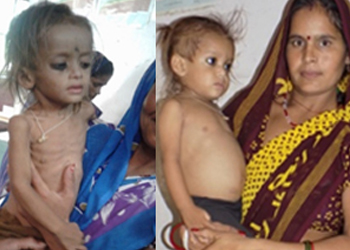
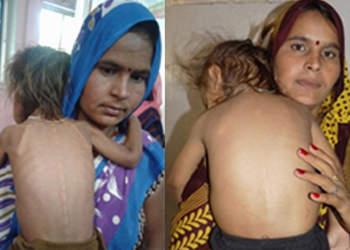
As parents, we want the best for our children, and not being able to provide the basics for them is devastating. After the loss of their home due to flooding and a lack of food during this harrowing time, Amar and Niraj were distressed to see their youngest turn to skin and bones. Sahel was only 18 months old, and he developed a fever and diarrhea, resulting in Severe Acute Malnutrition, or SAM.
The Community Coordinator for Chhatarpur Christian Hospital’s Mother and Child Health Project made numerous visits to the family and recommended that Niraj take Sahel to the Nutrition Rehabilitation Center (NRC) in a nearby village. She knew that Sahel needed medical care in order to return to a healthy weight. But Sahel’s grandmother refused to allow his mother to take him in, instead taking him to black magicians and giving offerings at temples. Sabel continued to deteriorate, and his parents feared for his survival.
After the Project Officer visited the family again, Niraj took matters into her own hands and insisted on taking Sabel to the center. The nutritionists admitted him for three weeks. During this time, the Mother and Child Health Project Staff visited them daily. Niraj followed the instructions of the NRC staff and took excellent care of Sabel. Slowly but surely Sahel began to turn around and show some promising signs. He gained five and a half pounds during his time at the center. When they returned home, Sabel’s grandmother was quite surprised to see the dramatic change in his health, and now she is grateful to Chhatarpur’s Mother and Child Health Project Team and the NRC team.
After Sahel’s success, Niraj was motivated to educate other mothers in her village on nutrition. Three more village children have since been admitted to the NRC, and many more families are willing to look into it, thanks to Sahel and his story.
Community Receives Life-Sustaining Provisions
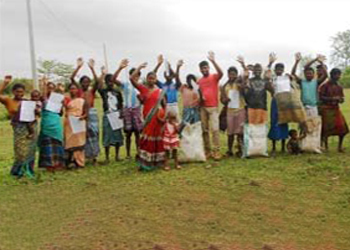
The Malto tribals of northeastern Jharkhand are a particularly vulnerable group with a diminishing population, a pre-agricultural level of technology, and a very low level of literacy. It was to address the health needs of this group that Prem Jyoti Hospital was founded in 1996 via a unique partnership between EHA, the Friends Missionary Prayer Band (FMPB), and the Evangelical Fellowship of India Commission on Relief (EFICOR). Since that time, the hospital staff have branched out beyond medical care to address holistic transformation in the community. This includes advocating for the benefits provided by the government that tribals are often unaware of or unsure how to obtain.
In India, it seems almost everyone in a position to do so takes bribes. In the village of Thalmigodda, some of the households didn’t have a ration card and therefore could not get the monthly provision of 35 kg of rice to help sustain their family members. They went to the Prem Jyoti Community Development Facilitators (CDFs) Silas and Sumitra for help. Silas spent his own money to go to an internet shop in town to download the entire village list of those considered to be Below Poverty Line. He was shocked to see 75 names on the list when only 60 were receiving the rice benefit. It turns out that the village leader and the dealers were pocketing the extra provisions and making a huge profit.
Understandably, the people of the village were furious, and they called for an inquiry with the village leader and the five dealers. These men tried offering Silas a bribe, but he was determined to be upright in his dealings and refused. Having no choice, the leader and the dealers agreed to provide supplies for everyone on the list. So thanks to Prem Jyoti’s CDFs, fifteen more families are receiving needed rice rations. This food supply can mean the difference between life and death for these tribal peoples.
EHA Helps a Child’s Development
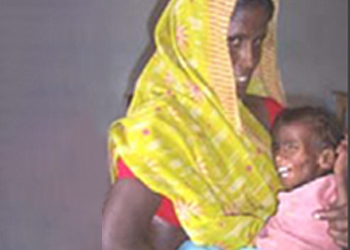
Mothers watch their babies’ development closely, and if they seem small, worry develops. Geeta’s eighth child, Pankaj, weighed only six and a half pounds by two years of age. She took him to a nurse for a consultation, and was educated in how to give a high calorie diet to him to help his development. She was also encouraged to go to the district Nutrition Rehabilitation Center, where they stayed for two weeks, receiving good food and care. Over the next seven months, Pankaj gained nine more pounds. Helping the poor understand good nutrition is one practical way EHA works to meet the needs of those around them.
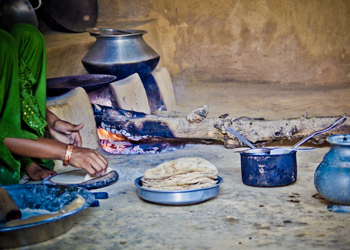
About Nutrition
One practical way EHA works to meet the needs of the poor in north India is by helping them understand good nutrition. Basic nutrition should be a necessity, but too often, it is more of a luxury in rural north India villages. Nutrition is especially a problem for children and for pregnant and nursing mothers. The permanent ache of malnutrition affects every area of life.
Flooding and other farming issues can lead to a lack of food or an imbalance in diet, and relatively simple illnesses like fever or diarrhea can go untreated and lead to severe malnutrition. Especially for young children, one simple illness plus poor nutrition can leave them as skin and bones.
EHA works with pregnant women who feel hunger pangs all day long and who worry about malnutrition for their babies. Better nutrition brings not just health, but also peace of mind. EHA has also worked to provide nutrition in children’s lunches and to help villagers have access to government rations that are available but not always as accessed as they should be.
